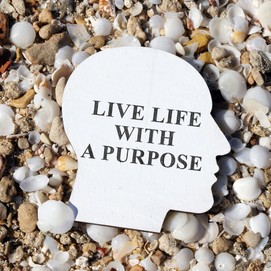 There’s So Much I Didn’t Know I have been blessed in my career to have had some amazing jobs. I spent many years working in the non-profit sector. I’ve coordinated large events, worked in a cancer treatment center, and managed a senior/assisted living community. For the most part, the majority of my professional life has been spent in settings where I felt like the work, I was doing had value. So, when I made the decision a couple of years ago to “retire”; it didn’t take long before the feeling that I was somehow worth-less, started creeping in. I missed working, but more specifically . . . I missed doing meaningful work. I started looking for opportunities and was thrilled when I was hired for the position of Foundation Assistant with the Olivia Caldwell Foundation! I began working for the OCF in March of this year. Being the “new kid” is always a bit intimidating, but I have been welcomed warmly by the other members of the staff and by the OCF Board of Directors and have found a great mentor and friend in Katelin Gitthens, the lead of the Patient Advocacy Program, with whom I work most closely. Although I do have a well-defined job description, this position is new to the organization, and that means we’ve been doing a fair amount of figuring it out as we go. The Patient Advocacy Program is also relatively new to the OCF. It has been in existence for about a year and a half. The PAP focuses on addressing the needs of the whole family when a child has been diagnosed with a serious illness or medically complicated condition. We provide support and connections to resources that assist with travel expenses, childcare, school accommodations, medical support and equipment, food assistance, counseling, and anything else a family needs throughout their child's illness. We work with families from around the state, and the support we connect them to comes from a wide range of sources; from large national organizations, to state and local government agencies, to non-profits, to individuals who just want to help. One of my main responsibilities is to help manage these resources. As I’ve been researching and reaching out to these various partners, it’s been amazing to see the breadth and depth of support that is available. Many of these organizations have origin stories much like the OCF . . . where an unimaginable loss ignited a passion to help others going through a similar experience. As heartening as it has been to learn about all these wonderful programs . . . it’s also been quite sobering to learn how great the need for them is. We get referrals nearly every day; either families calling us directly, or from other service providers or representatives calling on their behalf. Some of them are facing short-term issues and their needs are easily addressed, others are facing catastrophic situations, with complex health conditions that are going to be on-going and require numerous resources throughout the life of the child. Regardless of the scenario, it’s always frightening to have a child that is hurting. However, even in the midst of their circumstances, the strength, courage, and resilience of these families is awe-inspiring. So, what have I learned so far? There are many awesome organizations and agencies in Wyoming, and elsewhere, staffed by dedicated people with a passion for serving others; and there are so very many families with sick children in need of their support. I am blessed to be working for the Olivia Caldwell Foundation, where, in some small way, I have the opportunity to help bring these two groups together. It is work with a purpose, and I am so grateful.
Categories All
0 Comments
 Life doesn't always go as we planned. We lay things out and then curve balls come flying in hot. We map out just how life is gonna go in our minds and then BOOM, it falls apart and takes you on a whole different path. I am a firm believer that everything happens for a reason, even if we don't like the reasons or the events. When I was younger I thought for sure I would be a teacher. Then I went through the idea of being an attorney, world class chef or maybe even a nurse. I ended up in Massage Therapy school, and never even used my license. Through the years I have taken many online courses and certifications in a variety of fields. I have worked in childcare, financial institutes, government buildings, a grocery store, food industry, customer service, cleaning industry, in-home care and school system. And for fun, I am an Ordained Minister. Lets just say it has taken me a long path to figure out exactly what I want to be when I grow up. I enjoyed all the avenues I went through along the way. Some more than others and I feel along the way I have always shown I can excel in anything I do. Luckily, I have landed in a position where I get to use all my past experiences. I feel like I had to go through all of those to lead me right where I'm meant to be and am able to use all those learning experiences in my day to day ventures. That is really all you can do. Take the hand you are dealt and play it out. The key is to use every aspect as a learning curve. It is safe to say that along the way you're gonna encounter some mighty curve balls, and you're gonna have to climb some pretty big mountains to get where you need or want to be. What did you dream of becoming when you were younger? Is that what you do now? Or did life throw you all over the place and give you some curveballs of your own that you have had to navigate through? Was there something you swore you would never do and here you are doing it?! Do you feel stuck where you are at? Needing to revamp or spruce up your everyday life?! Sit back and evaluate. I know that when people ask me where I see myself in 5 years…I panic! UM, look, I’m just trying to make it through day to day. Did you know that is actually one of the hardest questions to answer? It is proven most people don't even KNOW what they will be doing in 2 weeks let alone 5 years! I mean they can assume and have a solid plan, but life happens. Fifteen year old me saw myself at the age of 36 being rich off my own law firm, having 2 kids and living at the beach. Well here I am, living in the country, with 3 kids and I would say the only things I'm rich in are love and animals. I wouldn't change it for the world honestly. I can tell you a lot of the doubt that comes with not being where you thought you would be is lack of confidence. So what, you didn't go to law school or become a doctor. You have gone through more jobs in your 20’s than you have pairs of underwear. And frankly your surroundings aren't where you exactly thought you would be. If you find yourself double guessing yourself and questioning if you are where you want/need to be, take a step back and look at the bigger picture. Write down pros and cons. Maybe make a dream board and evaluate if what you're doing now will get you where you want to be later. Try to factor in all your life lessons and experiences. Have certain things made you have a different perspective? Use that to help guide you where you want to go next. Just because you aren't exactly where you thought you would be, don't be discouraged or upset. Take it as it is. But also be careful not to use your past experiences as excuses for poor choices or lack of drive in your day today. Only you can be in charge of how you handle your life. Only you can choose your future. Give yourself grace and allow yourself to have the confidence that you are made for great things, even if those great things aren't as you pictured to begin with. Life changes, the world evolves and so do you.
Categories All 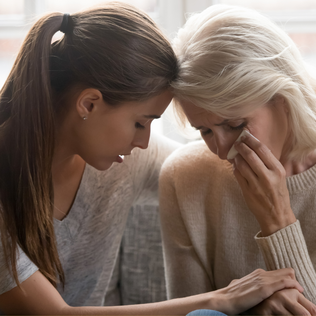 Empathy. What is this? The ability to understand and share the feelings of another. The definition in itself is pretty simple looking. You feel sad, I feel sad. You mad? Let's be mad together. But when it comes to empathy or being an empath, there are so many aspects others may not realize. Empathy is a huge concept. Before we dig deeper into this, I want you to understand that empathy is NOT the same as sympathy. Many get them mixed up. What is the difference between empathy and sympathy? Sympathy involves understanding from your own perspective. Empathy involves putting yourself in the other person's shoes and understanding WHY they may have these particular feelings. If you are unsure whether or not you are an empath, here are some traits typically found with empathy.
Empaths are not meant to be sponges or enablers, they are simply for help, support and guidance. During the holidays so many get extra stress from extra purchases, or they are missing a lost loved one deeply. Throughout these times of year, friends and family need the extra support. If you find yourself helping more, and really aren’t sure how to keep up with it all, here are some tips to help make the process easier on you. 1. Make your overall health and wellness a priority. Don’t let taking care of others stop you from caring for yourself. Find activities that replenish your reserves and find ways to incorporate them into your schedule. Read a good book. Set aside time to pray or meditate. Listen to a soundtrack that soothes you. Take your dog on a walk or keep up with a regular exercise routine. Allow yourself some time to decompress and be alone when you need it. These little investments in your health can make a big difference. 2. Don’t be ashamed of your big heart. Your empath traits make you a compassionate person and a cherished friend. Your ability to connect with the emotions of others is a blessing. But it will require awareness so you don’t become overly immersed in the emotional highs and lows of others. Be gentle with yourself as you navigate tough emotions and situations. 3. Remind yourself that saying no is not selfish. Boundaries are important and can help prevent burnout. We all have a limited amount of time and resources to give. You can’t help everyone at all times. Be gracious with yourself as you decide what you’re able to handle and when you may need to step away or pass on something. 4. Allow yourself time to recharge and regroup. Rest is so vital. Be honest when you are at max capacity. It may feel unnatural at first, and you’ll want to give people rationalizations, but knowing your limits and making your mental health a priority is nothing to be ashamed of.. Empaths often need time to be alone and recenter. Giving yourself blocks of time by yourself to recuperate is probably one of the most important things to remember. Don’t forget. Just as you have a heart for helping others, there are people ready to help you, too. Please, if you are struggling, do not be afraid to ask for help. Sometimes we need tools to help us process our emotions or a trusted friend or counselor to listen. It takes strength to let someone in and evaluate when you may need additional assistance.
Categories All 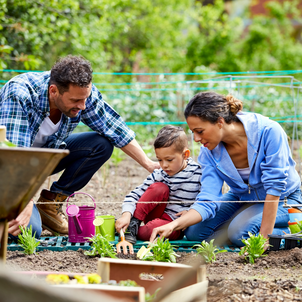 Never would I imagine I would get to the age where I love getting to bed early, reading a good book and seeing my garden grow. But here I am with seedlings growing in every windowsill of my house, finding it hard to stay up past 10pm and I head to the library every two weeks for a new book to read. All of these activities have become a great way for me to relax and relieve stress. Life gets crazy with all of our responsibilities: raising kids, all the sports commitments, having a career, keeping friendships alive, working on your health, providing dinner every night and somehow keeping our houses somewhat clean amongst all of that. I’ve always been a go-go-go type of person and I was starting to burn out. So I have made much more intentional time to slow down. I prioritize taking time to read a good book instead of watching tv. I get to bed at a decent time so I have enough energy to take on all of life’s responsibilities (which many times means the to-do list doesn’t get complete but life goes on). And I’ve found a new joy in growing a garden. There’s something remarkable about an entire plant growing out of a tiny seed and even more exciting when it provides food for your family to eat. Now, I definitely don’t have a natural green thumb but I’m learning and it’s been a neat experience to include my kids in. Let’s explore why gardening is a great stress reliever according to Elizabeth Scott, PhD: Sunlight Sunlight has been proven to improve mood. Everyone can benefit from more Vitamin D, especially those of us who have just experienced the prolonged winter months where sunlight was limited. “Sunlight also provides an influx of vitamin D, and the fresh air that goes with it is good for your health. Getting outdoors to work with your garden is a great excuse to get more of this good stuff.” Spending 30 minutes tending to your garden will give you extra sunlight you may not have had otherwise. Connection To Nature “Being in touch with nature and the great outdoors can help you feel more removed from the stressors of daily life. With the amount of time we spend indoors (at work, watching t.v., etc), many people feel an urge to connect with nature that goes unfulfilled.” Most of us don’t have time everyday to go on hikes, go camping or do other activities that allow us to connect with nature but simply going to your garden and helping it flourish is a great way to help mother nature do exactly what it’s meant to do! Creating Beauty There’s something magical about taking a seed and watching it sprout. It’s exciting and I find myself rooting for the little plants to be fighters so they can all grow into mature plants. Also, plants can add a great pop of color to any space. “The beauty of nature is a great stress reliever in itself. Just think of how many times relaxation has been connected with pictures of stunning landscapes or recordings of nature’s sounds.” Create a space in your yard that can become your garden sanctuary. If you live in a small space or apartment, find a space where you can have planters and watch how it improves your space. How to get started If you’re new to the gardening world I would recommend doing some research before getting started. You can certainly purchase your supplies but there are plenty of cost effective ways to create your own space as well. Some seeds require indoor growth before planting outdoors so pay attention to these details on the seed packages. I do find the details on the back of the seed packets to be rather vague so take the time to do extra research on best methods for the plant you’re growing. Don’t forget about local nurseries and growing clubs- these are a great place to purchase plants that are more mature and have a higher likelihood of growing to full potential. A resource I’ve learned a lot about regrowing produce we already purchase from the store is @creative_explained on Instagram. It’s pretty amazing to learn how we can utilize the resources we already have to grow something new. Living in a world full of information at our fingertips I know you can find what you need to grow a successful garden. Just keep in mind it may take a few seasons of trial and error and it’s more than okay to start small. Please share any gardening tips you have in the comments! Source: https://www.verywellmind.com/gardening-for-stress-relief-3144600
Categories All 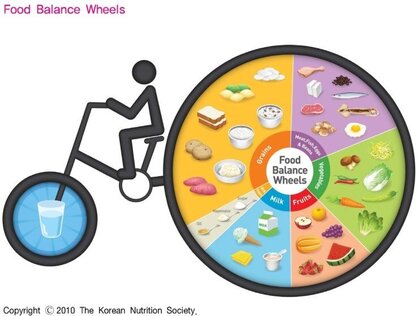 Nutrition. The huge elephant in the room that nobody wants to discuss when really it needs to be. I know, I know. Another article on why we need to eat our fruits and vegetables, drink water and get the right amount of protein. Trust me, if cake and diet soda were in the nutritional wheel as a staple, I would be the first in line to be healthy. Unfortunately, it does not work that way. In order to live a healthy, long life, we really do need to make sure our nutrition is somewhat on point. March is National Nutrition Month! So what better time than to go over some key factors as to why our nutrition is SO important. Nutrition can vary from person to person because of age, health status, schedule and other defining factors. It is always a good idea to consult your health care provider before starting any special nutrition plan. Not all nutritional eating plans work for everyone. We all know the basics of the nutrition wheel. Vegetables, fruits, whole grains, dairy, and proteins. But we don’t always know why we need to follow these recommendations. Proper nutrition can lead to healthier lifestyles all across the board. Nutrition is medicine. No, it can’t solve every issue, but it can resolve symptoms a huge percentage of chronic illnesses people experience. Nearly half of all Americans have at least one chronic illness. For people with chronic diseases, healthy eating can help manage these conditions and prevent complications. Good nutrition is the key to good mental and physical health. Eating a balanced diet is an important part of good health for everyone. The kind and amount of food you eat affects the way you feel and how your body works. People with healthy eating patterns live longer and are at lower risk for serious health problems such as heart disease, type 2 diabetes, and obesity. Allowing yourself to fuel your body with the right nutrients can help improve your ability to fight the common cold or nasty virus that is circulating around. Being properly fueled can help you recover from injury as well. You may not think that proper nutrition helps with mental health, but studies show that it in fact plays a huge role. You could find yourself having more energy, and in better moods. A healthy diet promotes a healthy gut, which communicates with the brain through what is known as the gut-brain axis. Microbes in the gut produce neurotransmitters like serotonin and dopamine, which regulate our mood and emotions, and the gut microbiome has been implicated in mental health outcomes. Studies have even found that healthy diets can help with symptoms of depression and anxiety. Here are 10 small ways you can improve your nutrition.
If you are looking for more information on proper nutrition check out any of the following websites: the American Heart Association, American Cancer Society and the American Diabetes Association.
Categories All |
AuthorWrite something about yourself. No need to be fancy, just an overview. Archives
December 2022
Categories
All
|
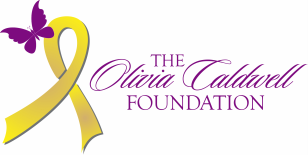





 RSS Feed
RSS Feed



